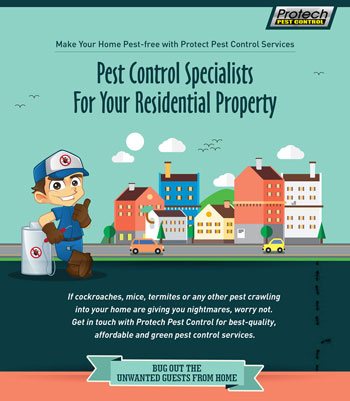Delving Into Advanced Approaches Utilized By Parasite Management Professionals
Delving Into Advanced Approaches Utilized By Parasite Management Professionals
Blog Article
Written By-Bynum Hendriksen
Are you tired of relying exclusively on sprays to manage bugs in your home or work environment? While sprays can work, pest control specialists have developed advanced strategies that go beyond merely splashing chemicals.
These strategies not just give much more reliable and lasting options, yet also focus on minimizing the use of unsafe pesticides. By discovering these advanced techniques, you will discover a whole brand-new world of pest control techniques that are not only effective, however likewise eco-friendly.
So, are you prepared to take your parasite control video game to the following level?
Integrated Parasite Management (IPM)
If you're trying to find an effective and environmentally-friendly strategy to pest control, Integrated Bug Administration (IPM) is the option you require. IPM concentrates on lasting avoidance and monitoring of parasites, as opposed to merely relying on pesticides. This method takes into consideration the details requirements and actions of insects, as well as the surrounding environment.
By using a mix of methods such as organic control, environment control, and targeted pesticide usage, IPM intends to lower the reliance on chemical therapies and decrease damage to non-target organisms.
One key facet of IPM is keeping track of and determining pests precisely. This includes on a regular basis inspecting and examining the pest population, along with determining the specific species present. By recognizing the biology and behavior of insects, insect control professionals can establish targeted approaches to disrupt their life process and minimize their numbers.
One more essential element of IPM is making use of non-chemical control methods whenever possible. This can include physical barriers, such as mounting displays or sealing splits and openings, to stop insects from getting in structures. Furthermore, social techniques, like proper sanitation and waste monitoring, can help eliminate parasite food resources and breeding premises.
When pesticides are necessary, IPM focuses on using them carefully and as a last resort. This indicates choosing the least toxic and most reliable alternative, using it specifically and just to impacted locations, and complying with all security guidelines. By minimizing pesticide use, IPM lowers the prospective risks to human health and the atmosphere.
Biological Control
To further enhance the performance of Integrated Parasite Administration (IPM), the next subtopic we'll explore is the technique of biological control. This technique utilizes natural predators or parasites to control pests.
Right here are four key aspects of organic control:.
1. Intro of all-natural enemies: In this method, helpful pests or organisms are presented to the area infested with parasites. These all-natural enemies prey on the pests, assisting to decrease their population.
2. Conservation of natural adversaries: As opposed to introducing new organisms, this method focuses on creating an ideal atmosphere for existing useful bugs. This can be accomplished with supplying food, shelter, and water sources.
3. Enhancement: Here, the variety of natural adversaries is raised unnaturally by reproducing and releasing them into the ravaged location. This aids to swiftly decrease the pest population.
4. Push-pull technique: This technique incorporates repellents and attractants to adjust the habits of pests. Repellents press parasites far from plants, while attractants entice them in the direction of catch crops or locations where they can be quickly controlled.
Environment Modification
Environment adjustment plays a critical duty in insect control by modifying the environment to dissuade bug invasions. By making changes to the physical characteristics of a room, you can produce an unwelcoming environment for insects, making it harder for them to make it through and thrive.
One usual approach of environment adjustment is getting rid of or minimizing prospective food sources for bugs. This can consist of appropriate waste monitoring, sealing containers, and tidying up food crumbs.
Additionally, getting rid of or lowering locations of standing water can assist control insects like mosquitoes.
Transforming the landscape by trimming trees and hedges away from buildings can also prevent insects from accessing your building.
Final thought.
So there you have it - the advanced strategies made use of by parasite control specialists go beyond just spraying chemicals. Integrated Insect Management (IPM) incorporates different methods to successfully control parasites, while biological control takes advantage of all-natural opponents to keep bug populaces in check.
Visit Homepage plays an important function in stopping bug invasions.
Did you know that according to a study, implementing IPM strategies lowered chemical use by approximately 71%? just click the up coming web site shields our wellness and the atmosphere yet likewise conserves money in the future.
